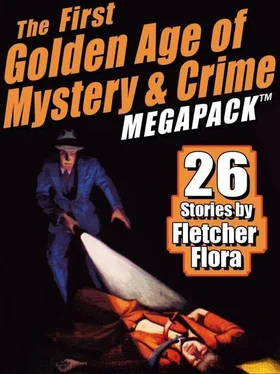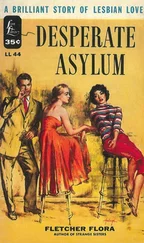Moving quietly and quickly, he shaved, brushed his teeth and hair, made all use of the bathroom that he would need to make. When he was finished, he removed a hypodermic syringe from the medicine cabinet and loaded the barrel with a potent anaesthetic he had acquired with considerable difficulty. Carrying the loaded syringe, he went back into the bedroom.
His wife Wanda slept in peace, her lips curved in the slightest smile over protuberant teeth. Her hair, fanned untidily on the white pillow around her head, was sparse and a kind of dun color, the color of a common mouse. It occurred to him, as he stood looking down at her with the syringe in his hand, that she possessed many characteristics that combined to achieve that mouse-like impression — the hair, the teeth, an overall scurrying timidity that seemed to view the world with bright, apprehensive eyes. A strange sort of woman to have a million dollars in her own name. Tragedies sometimes develop from incongruities like that — a woman like Wanda with that kind of money. This thought occurred to him, too, in those final moments before he acted, but the thought stimulated in him no pity, no abortive remorse.
She was sleeping on her back, her left arm curled up around her head on the pillow. Her hand was turned palm upward, which exposed the soft underside of her wrist, and this made the job easier, of course. He could see without difficulty, even standing erect, a linear bulge of pale blue vein. He sat down beside her on the edge of the bed, and she sighed and stirred but didn’t waken. Taking hold of the hand on the pillow and leaning his weight suddenly down upon her body, he slipped the sharp needle of the syringe into the soft flesh of her wrist and forced the plunger down.
She awoke with a sharp little cry, her eyes flying open with almost instantaneous understanding and terror, the understanding that what should have been the beginning of only another day was in fact the beginning of the last day. The initial cry repeated itself over and over, issuing from her throat like a pathetic, stereotyped plea, and her small body threshed futilely against the pressure of his. The anaesthetic injected, he placed both hands upon her shoulders and pinned her firmly, applying no more force than necessary and being careful not to dig into her flesh with his fingers. For he wanted no bruises. No signs of struggle.
The anaesthetic worked swiftly, and it was hardly any time at all until she slipped into an imitation of death that was, for her, a prelude to the real thing. He stood erect again, breathing deeply, sucking in and expelling air in a slow, rhythmic cadence. The needle, he saw, had torn the flesh of her wrist a little, but not seriously. The tiny wound would, as he had planned, be easily included in a later and larger one.
Turning away, he returned to the bathroom and ran cold water into the tub. While the water was running, he unwrapped a new razor blade and laid the shining and deadly bit of edged steel on the lavatory in readiness. Then, watching the water rise slowly in the tub, he considered details. How would she do it? Would she sit in the tub in the water? The idea of the bloody water staining the flesh of her body was repulsive to him, and he was certain that it would be repulsive to her. It was something she wouldn’t do, to sit in the water like that. No. She would be more likely to kneel beside the tub and let her arm hang over the edge. Or, better yet, she would sit. She would sit at one end, sidewise to the tub with her back against the wall, letting the arm hang over into the water. That would be the natural way, the comfortable way, the way she would probably do it if she were doing it of her own volition. Satisfied, he shut off the water taps and went back to her bed.
She was light in his arms. So very light. She must have weighed no more than a hundred pounds. Cradled in his arms, she looked like a sleeping child, her head dropping forward against his shoulder with an appearance of affection. Of this appearance, however, he was unaware. He was unaware of everything except the dominant necessity to do the thing right. In the bathroom, he set her on the floor in the position he had decided upon and recovered the tiny blade from the lavatory. He wiped it clean on a bit of tissue and put it between the thumb and index finger of her right hand. Holding it that way, between the two digits, he made the necessary quick incision in her left wrist and permitted the blade to drop free into the water. That’s what would happen, he thought. She would certainly let the blade drop into the water.
Around her submerged hand and wrist, the water reddened swiftly, the depth of the color fading at its spreading fringe to a sickly pink. He watched for a moment the spreading stain, and then he left the bathroom for the last time. He left her for the last time, too, of course, but he felt no particular sense of parting. Even in the intimacy of marriage, he had been aware of her only vaguely as a person. Primarily as a symbol, a source of supply, a kind of million dollar personification.
He moved unhurriedly around the bedroom, gathering his clothes. He dressed with his usual fastidious attention to details, and the result of all this careful attention was, strangely, an effect of casual perfection, as if he’d just thrown his clothes on anyway and they had somehow assumed just the right drape and lines. When he was dressed, he packed an expensive leather bag with additional items of clothing and set the bag on the floor by the door through which he would leave. Crossing the room from the door, he sat down at a desk between windows and wrote a few lines on a single crisp sheet of paper, the top sheet of Wanda’s stationery, which she’d touched, so that her prints were undoubtedly on it. He already had the lines formulated in his mind, and so he wrote swiftly: Dear Wanda, I’ve tried to be honest with you about Carol, and I’m trying to be honest now. We’ve decided to marry as soon as I can get free. I’m going to a hotel and will send later for the rest of my things. Please don’t try to contact me personally, but I’ll be happy to talk with your lawyer about a divorce. I assure you that I’ll cooperate fully, and I’m very sorry if this causes you any distress.
He signed the note with his first name only and then crumpled the paper in his hand and dropped it on the floor, as it might have been crumpled and dropped by someone in a powerful emotional reaction. By a mousy little woman, for example, whose handsome and adored husband was leaving her. A pathetic little woman, really, in spite of a million dollars, who could find, in the bitterness of desertion and in the distorted satisfaction of a terrible recrimination, the final strength it would take to slash her wrist.
His lips twitched with a touch of irony at the idea of recrimination, and he went over and picked up his bag and left, locking the door of the apartment behind him.
Walking down the hall to the elevator, he was a picture of ease and well-being, one of life’s lucky boys, broad shoulders and narrow hips accentuated subtly by fine tailoring. The rhythmic scissoring of his legs was crisp and certain but managed to convey an impression of effortless motion that contributed to a total effect of thoroughbred arrogance. He was a man whose mind was untroubled by intimations of misfortune or suffering or disgrace. He was a man to whom such things just didn’t happen.
The elevator boy, who secretly hated his guts, smiled pleasantly with a professional regard for the side of the bread the butter was on. “Good morning, Mr. Bruce. Leaving us for a while?”
Charles glanced down at the bag in his hand and nodded shortly. “Yes.”
His incisive monosyllable discouraged further questions, and the operator, watching the straight back, almost military in bearing, cross the lobby downstairs and exit through the street doors, compensated for the feeling of inadequacy Charles always gave him by calling him mentally a conceited bastard.
Читать дальше












